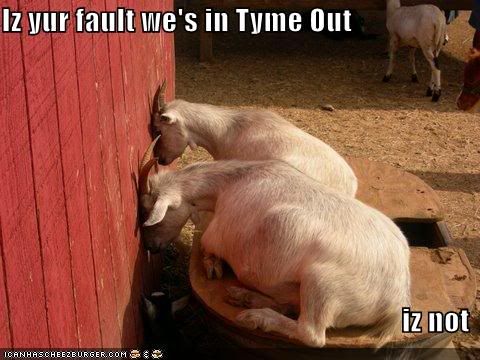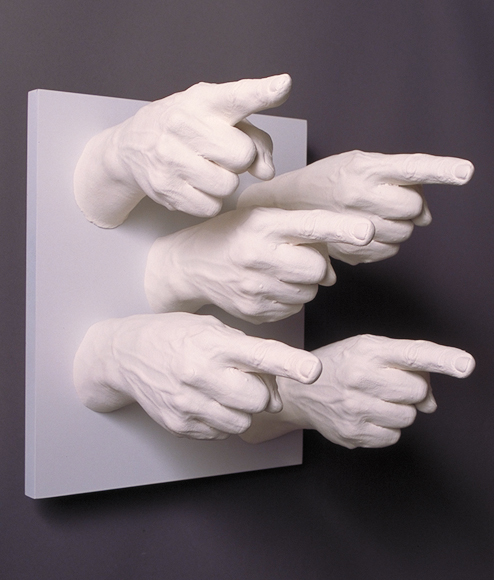Merry Christmas and an early Happy New Year to everyone!
I'm a firm believer the world won't end in 2012, but I guess we'll find out soon enough.
This is not a regular Christmas for me. The end of this year symbolizes a small (but important) transformation in my life. Starting January 3rd, I'll be "working" in the hospital for my clinical rotations. Gone (mostly) are the lecture halls and didactics that have been my home for more than a decade. Now, I start my on-the-job training.
I've mentioned this a couple of times before - the clinics are something I've looked forward to for a long time, something I've worked towards for many years. But it also creates a lot of anxiety. I feel woefully inadequate to take care of patients. But people reassure me that the training I've received so far is much more comprehensive than I realize. That I am more prepared than i realize. That small consolation goes a long way.
Then again, I guess this kind of anxiety is a good thing. A little bit of stress does improve performance... but more importantly, it harkens back to an important lesson from my differential diagnosis class - don't assume you know everything about the current situation. This is the cornerstone for a good differential diagnosis: you always keep your mind open to other possibilities, and you force yourself to think of counter example - what else could it be?
By walking into clinics assuming I know less than I do, I'll force myself to keep my eyes and ears open. It forces me to be on my toes just a bit more. At a personal level, this means I'm hungrier to learn more. But the more important (and bigger) effect it'll have will be for my patients: I'll be taking second, third and even fourth looks over their plans, histories, results... the works! I'm hoping this second guessing will make me a better student now, and (eventually) a better doctor.
So here's to the end of a beginning and the start of a new phase in my education. On the job training isn't something new to me - I worked in the corporate world for 5 years before coming to medical school. But this is a very different animal. Sappy as it sounds: lives are on the line.
There will be many more "ends of beginnings" to come, I have no doubt of that. But I believe recognizing and respecting milestones (like this one, even though it's a small one) is crucial to the learning process.
This is a bit tangential (and if this is your first time reading my blog, you'll realize that I almost always have tangents in each post), but times like this remind me of what it takes to be a good doctor. For some reason, whenever I think of that, I'm taken back to a scene from Scrubs (one of my favorite shows).
This is one of the most powerful scenes from the show and it has stuck with me for many, many years. A great doctor is someone who is very invested in his patients... but knows the importance of staying objective. Walking the line and keeping tragedies from debilitating your work is not the easiest thing to do, but I believe it is an important lesson to learn. Here's hoping I learn it.
Enjoy the New Years! And if the world does end in 2012 - I'm going to be very sad because I'm JUST starting the really fun stuff...
- Karthik
I'm a firm believer the world won't end in 2012, but I guess we'll find out soon enough.
This is not a regular Christmas for me. The end of this year symbolizes a small (but important) transformation in my life. Starting January 3rd, I'll be "working" in the hospital for my clinical rotations. Gone (mostly) are the lecture halls and didactics that have been my home for more than a decade. Now, I start my on-the-job training.
I've mentioned this a couple of times before - the clinics are something I've looked forward to for a long time, something I've worked towards for many years. But it also creates a lot of anxiety. I feel woefully inadequate to take care of patients. But people reassure me that the training I've received so far is much more comprehensive than I realize. That I am more prepared than i realize. That small consolation goes a long way.
Then again, I guess this kind of anxiety is a good thing. A little bit of stress does improve performance... but more importantly, it harkens back to an important lesson from my differential diagnosis class - don't assume you know everything about the current situation. This is the cornerstone for a good differential diagnosis: you always keep your mind open to other possibilities, and you force yourself to think of counter example - what else could it be?
By walking into clinics assuming I know less than I do, I'll force myself to keep my eyes and ears open. It forces me to be on my toes just a bit more. At a personal level, this means I'm hungrier to learn more. But the more important (and bigger) effect it'll have will be for my patients: I'll be taking second, third and even fourth looks over their plans, histories, results... the works! I'm hoping this second guessing will make me a better student now, and (eventually) a better doctor.
So here's to the end of a beginning and the start of a new phase in my education. On the job training isn't something new to me - I worked in the corporate world for 5 years before coming to medical school. But this is a very different animal. Sappy as it sounds: lives are on the line.
There will be many more "ends of beginnings" to come, I have no doubt of that. But I believe recognizing and respecting milestones (like this one, even though it's a small one) is crucial to the learning process.
This is a bit tangential (and if this is your first time reading my blog, you'll realize that I almost always have tangents in each post), but times like this remind me of what it takes to be a good doctor. For some reason, whenever I think of that, I'm taken back to a scene from Scrubs (one of my favorite shows).
This is one of the most powerful scenes from the show and it has stuck with me for many, many years. A great doctor is someone who is very invested in his patients... but knows the importance of staying objective. Walking the line and keeping tragedies from debilitating your work is not the easiest thing to do, but I believe it is an important lesson to learn. Here's hoping I learn it.
Enjoy the New Years! And if the world does end in 2012 - I'm going to be very sad because I'm JUST starting the really fun stuff...
- Karthik










